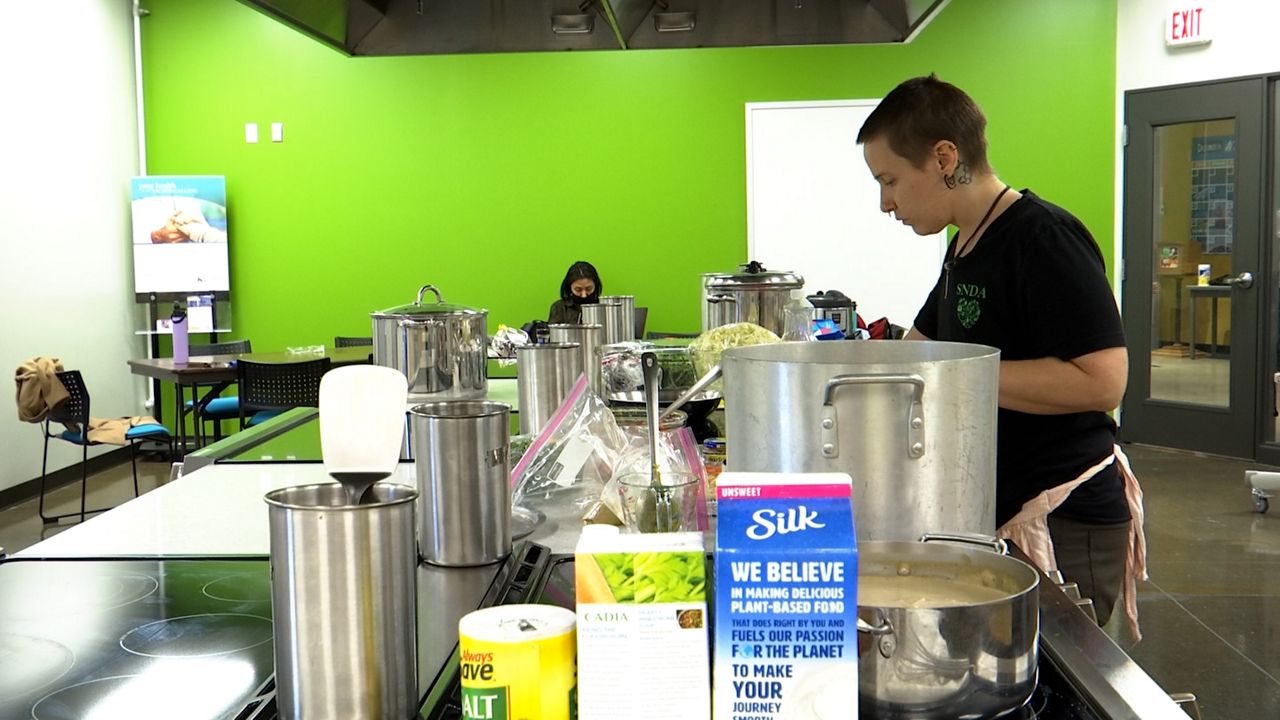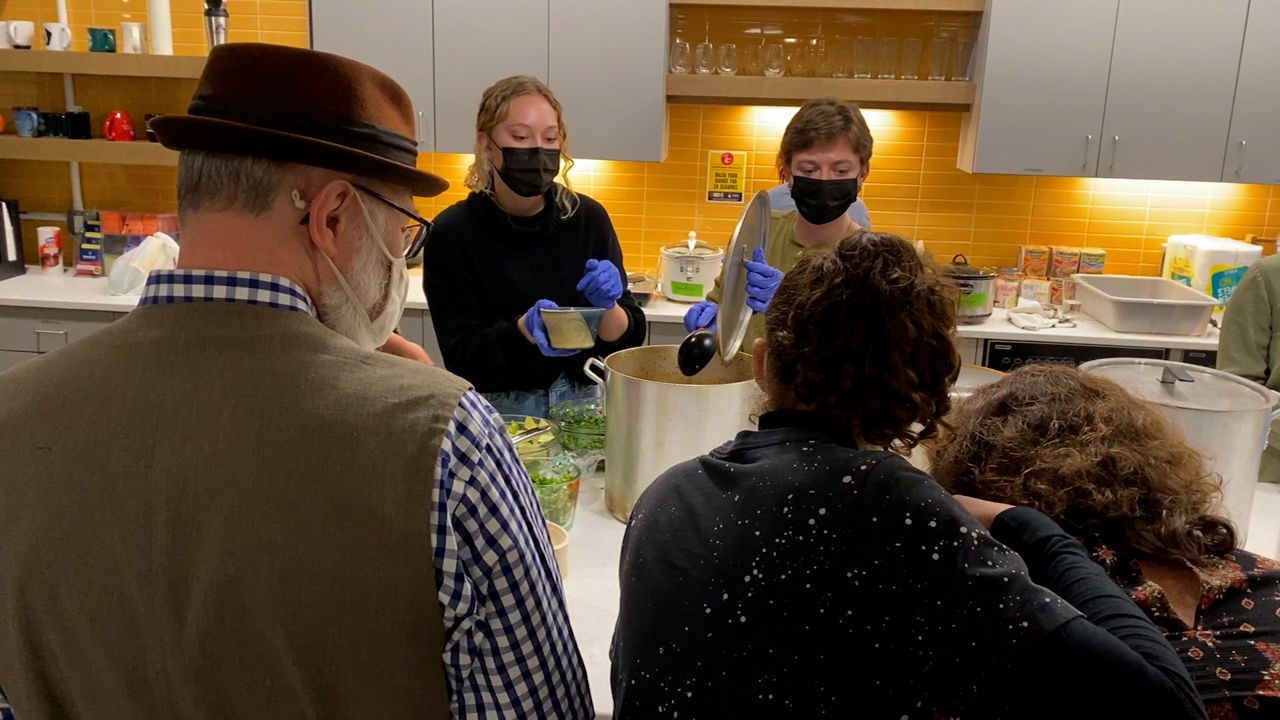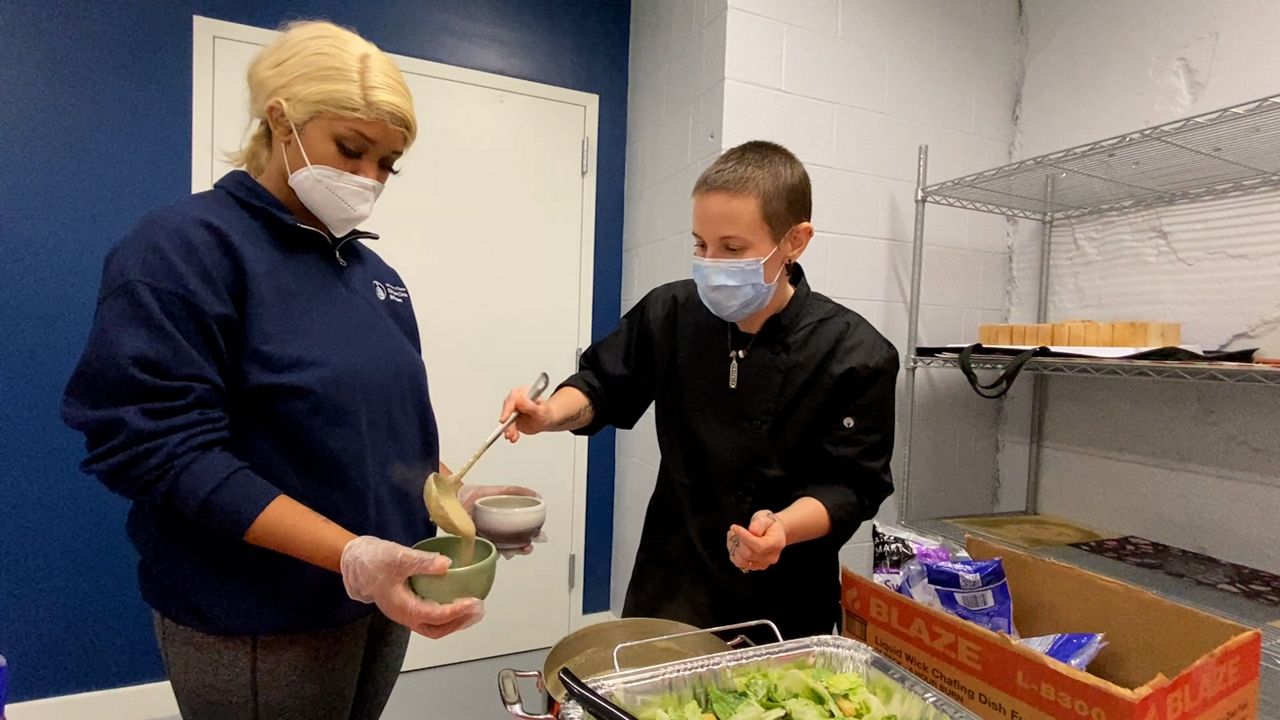DAYTON, Ohio — With three pans sizzling, two pots simmering and rice in the steamer, Christina Green is in her element, this time cooking for a cause.
The former chef is making meals for the Desert Kitchen Collective’s biggest fundraiser, Dinner in the Desert, one of many ways she’s hoping to help make healthy, fresh food more accessible through her time at the University of Dayton.
Growing up in a family of cooks and gardeners, good quality food has always held a place of honor for Green.

“My whole family cooks. I cooked a lot with my grandmother and then I ended up going to culinary school about 10 years ago,” she said.
Working in the culinary business was the natural fit, until the pandemic.
“I haven’t been in a restaurant since COVID happened,” she said.
Green had to take off to take care of her daughter and when things started reopening, she started to reconsider what was the right fit for her.
“I didn’t want to keep working nights and weekends,” she said.
Green said she also started reconsidering who exactly she needed to be feeding.
“I have friends and family that have lived that life where food is hard to come by and I’ve seen that struggle so now I’m in a position where I can make a difference,” she said.
That’s why she decided to go back to school enrolling at the University of Dayton to start her training to become a dietician.
“I really am interested in the community, side public health,” she said.

Green wants to help those without easy access to fresh, healthy food learn what to seek out, how to find and how to cook it. It’s also how she got involved in the Desert Kitchen Collective, a student organization made up of artists, activists, and food lovers, working to improve food justice in Dayton.
According to Dayton’s Foodbank Inc., more than 17% of people in Montgomery struggle with food insecurity, and even more live in what’s known as food deserts, or areas without access to fresh, affordable food.
“The closest store to them is a McDonald’s and a Burger King. There’s no grocery stores, that’s considered a food desert and so we’re trying to bring awareness to the food deserts that exist in the Dayton area,” Green said.
The Desert Kitchen Collective collaborates with groups looking to improve that access, like Gem City Market, the Foodbank and Latinos Unidos.

This year’s Dinner in the Desert raised more than $3,100 and counting at the end of the semester to support food access efforts, from soup and art sales, but besides fundraising, much of their efforts are focused on education.
Foraging was the theme of this year’s dinner, helping raise awareness of places anyone can access fresh food in their own environment, which is why Green served a soup made from foraged ingredients herself.
“Nowadays everybody calls things weeds when it’s actually nutritious and easily accessible,” she said.
The soup was made from Jerusalem artichokes, which are the roots of sunflower plants at the Marianist Environmental Education Center, and she seasoned it with wild onions she found in the grass.
“You can’t get everything that way but it’s a start toward making a difference,” she said.
As a future dietician, Green believes those lessons are some of the most valuable, realistic ways to help those who need it navigate their food system.



